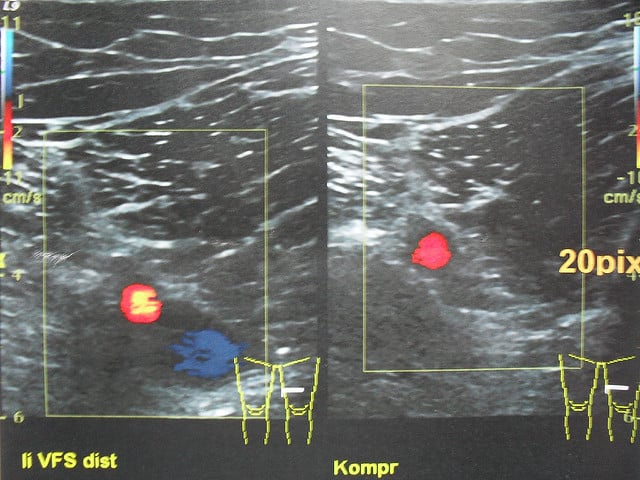Deep vein thrombosis, or DVT, occurs when a blood clot forms in your deep veins, usually in the legs. DVT is a potentially serious condition, as it can block blood flow back to the heart or damage the vein’s valves. The clot can also break off and travel to organs such as your lungs, a situation that can be fatal. In fact, approximately 1 in 10 people die from complications caused by deep vein thrombosis. If you are at risk for DVT, there are steps you can take to help prevent them. Here are five ways to avoid deep vein thrombosis.
Exercise to Avoid Deep Vein Thrombosis
You should engage in a regular exercise schedule—daily, if possible. Aerobic and cardio-based exercises such as walking and swimming are some of the best activities, as they directly affect the circulatory system to make it stronger. Through regular exercise, you will also manage your weight, which can also help prevent clots and avoid deep vein thrombosis.
Diet
Maintain a healthy diet that is low in fat and high in fiber that contains lots of vegetables and fruits. Losing weight through diet and exercise can reduce the risk of DVTs because the blood’s circulation will be easier, thus reducing the chances of pooling and clotting.
Lose Weight
Excess weight is also a risk factor for DVTs. The risk of DVT and blood clots increases steadily as your weight climbs above its ideal. The risk of blood clots doubles as your BMI goes from 25 to 30 and doubles again as your BMI rises from 30 to 40.
Quit Smoking
Quitting smoking will lead to a healthier circulatory system that is far less susceptible to blood clots. If you need help quitting, there are support groups, patches, gums, sprays, and even prescription medications that can help you kick the habit.
Follow Your Doctor’s Instructions/Advice
You should work closely with your physician. Inform him or her if you have a family history of blood clotting issues. This is important, as those with a family history of DVT are at a much higher risk.
Women who are pregnant or on contraceptives or hormone therapy should discuss these conditions to help avoid DVT. Birth control pills and hormone therapy increase the risk of DVT, so these medications should be monitored by your doctor.
At the St. Louis Laser Vein Center, we are vein specialists. If you are concerned about deep vein thrombosis, please call us as soon as possible to set up a consultation to discuss ways to avoid them and keep you and your veins healthy!

